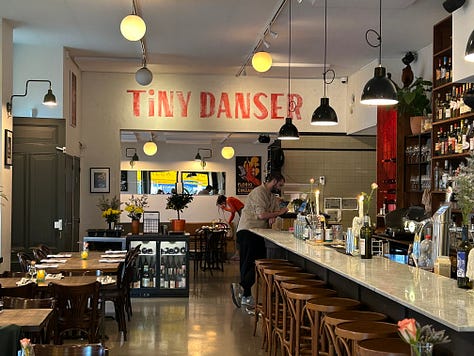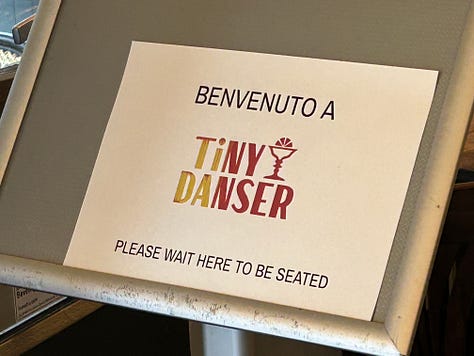‘Wat is een Tokkie?’ (What is a Tokkie?)
Vadim from Kazachstan had picked up the term from Dutch media and couldn't make out from the context what was meant by it.
A typical example of lingo that is cut-and-dried for native speakers, but not so for most others.
Someone who enters a new country often lacks cultural context. TV series that people with a Dutch background may not have watched themselves, but which they have at least heard or read about. Books, actors, singers, movies, politicians, sports people, influencers - the list is endless.
So infinite, it cannot be easily caught up with.
One of the reasons the average Dutch person speaks decent English is that we have been fully immersed from birth in North-American and British culture through movies, series, music, celebs, politics - you name it. Unlike with most other cultures, we can more or less interpret Anglo-American references and idiomatic expressions.
We know the difference between, say, a butt dial (broekzakbelletje) and a booty call (seksdate).
We, at least partly, talk the lingo.
Dutch culture, apart from Rembrandt, Van Gogh and 'Links Rechts'*, is a lot less widespread worldwide. Therefore, a non-native speaker lacks many a reference point. You may speak decent enough Dutch and still not quite follow the average conversation due to the non-shared context.
How to fill that gap?
Simple: read, watch, listen and above all keep asking, as Vadim is doing now.
What’s sometimes less simple, and a heavy responsibility, is how to respond.
What’s a ‘Tokkie’?
Around the onset of this millennium, a reality soap was featured on national television about a family with the surname Tokkie. These first reality stars of the Netherlands were not your average family.
Hence the reality soap.
Soon the name Tokkie became a generic term for someone with certain behavior: ‘Dat zijn echte Tokkies.’ (They’re genuine Tokkies)
A few years later, the lingo ‘Tokkie’ was included in the most important Dutch dictionary, De Dikke Van Dale: ‘A person whose behavior is unadapted to society’s prevailing norms […]’ it stated, followed by the disclaimer: ‘The use of the word, and its compounds, can be perceived as offensive by some.’
Nevertheless, even former Dutch Prime Minister Mark Rutte repeatedly used this pejorative, until he was openly criticized and vowed never to do so again.
In a new television documentary, the family members explained earlier this year how far-reaching the negative impact to this day is of the stigmatization of their surname created by this reality soap from decades ago.
How to convey all this to Vadim?
* ‘Links Rechts’ is the Dutch unofficial anthem for the 2024 European Championship, which has not only large Dutch crowds, but all kinds of nationalities, hopping from left (links) to right (rechts) in a so called ‘fan walk’ across the streets in cities where a football match will be held.
I teach NT2 (Dutch as a second language), mainly to young internationals who came to Amsterdam for or with love and intend to stay. The conversations reproduced here were all held in Dutch. For privacy reasons the names are fictitious.
Food lingo
Bone marrow - het beenmerg
Anchovy - de ansjovis
Fig leaf - het vijgenblad



Tiny Danser
Amsterdam society is rapidly becoming fully multilingual. You can hear it in the raps of local hip-hoppers, in stores, TV series and in the lingo of youngsters. Even restaurant names are multilingual. Like Tiny Danser. An eclectic name for this new pop-up, with ‘tiny’ being English, ‘danser’ being Dutch and the kitchen being ‘Italian’. Could it be a reference to the 1971 Elton John song ‘Tiny dancer’, which lyrics were written for the British singer by the French songwriter Bernie Taupin after his first visit to the US?
Who cares? This temporary modern trattoria serves sumptuous Italian-ish dishes plus ditto wines and cocktails.
Tiny Danser, Dapperstraat 10 Amsterdam. Open: Wed - Thur 5 PM till late; Fri 2 PM till late; Sat-Sun noon till late.



